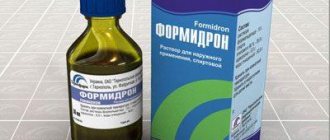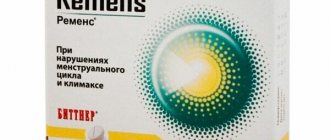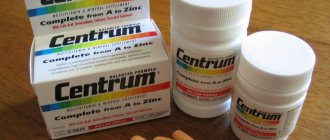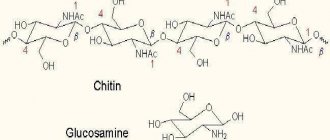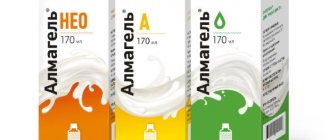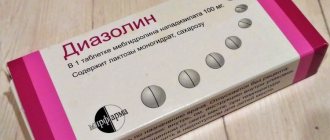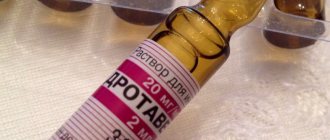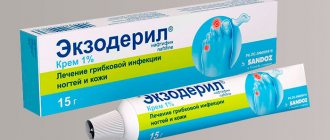Pharmacodynamics and pharmacokinetics
( INN: Lisinopril) is considered an angiotensin-converting factor inhibitor and can interrupt the chain formed from angiotensin II to I. Lisinopril reduces the level of the vasoconstrictor effect of the substance - angiotensin II , while the concentration of aldosterone in the bloodstream decreases.
Lisinopril helps reduce the volume of atrial resistance. The drug Diroton, its use to lower blood pressure, does not affect the heart rate (HR) and leads to an increase in minute blood volume, as well as renal blood flow. To achieve the maximum effect, 6 hours are needed. In the future, it lasts for about a day and may vary depending on the dosage of the drug. Diroton from pressure with prolonged use reduces its effectiveness.
Pharmacokinetic data
The absorption process occurs from the gastrointestinal tract, then lisinopril , entering the blood plasma, does not bind to proteins. Typically, bioavailability is no more than 25-30%, and the diet does not change the rate of absorption. The drug is removed after 12 hours. Since the active substance is not metabolized, it is excreted unchanged in the urine. The drug Diroton does not cause withdrawal syndrome if therapy is abruptly stopped.
What are the contraindications for taking
The use of Diroton to lower blood pressure is strictly prohibited for users who have the following clinical contraindications:
- Age category of the patient, under 18 years old;
- The patient has a history of Quincke's edema;
- Individual intolerance and hypersensitivity to the ingredients contained in the tablets;
- Increased tendency to exhibit allergic reactions;
- The presence in the user's medical history of idiopathic or angioedema;
- Aortic stenosis;
- Renal failure occurring in the stage of decompensation;
- Increased production of aldosterone by the adrenal glands;
- Recent surgical intervention aimed at removing or transplanting a kidney.
The drug is contraindicated for expectant mothers, as well as women during breastfeeding. This is due to the fact that the active substances of the drug penetrate the placenta, having a negative effect on the fetus and disrupting the processes of its normal development. The medicine is not used during lactation due to the lack of reliable data on whether its ingredients pass into breast milk and how they affect the body of a newborn baby.
For people over 70 years of age, the drug is prescribed with caution.
Medical experts also identify a number of relative contraindications to the use of Diroton tablets:
- Hypotonic disease (low blood pressure);
- Disorders of hematopoietic processes;
- Mitral heart valve stenosis;
- The patient's age category is 70 years and older;
- Electrolyte imbalance in the body;
- Obstructive cardiomyopathy;
- Systemic diseases affecting connective tissue structures;
- Pathologies of a cerebrovascular nature.
For patients with the health problems listed above, the drug is prescribed in minimal doses and only in exceptional cases. In this case, the therapeutic process takes place under the constant strict supervision of specialists.
Indications for use of Diroton
- the drug is effective in chronic heart failure (as part of combination therapy);
- if it is necessary to prevent left ventricular dysfunction , heart failure , as well as maintain stable hemodynamic Diroton tablets are used - for which they are effective, incl. in acute myocardial infarction ;
- for diabetic nephropathy (reduces albuminuria );
- indications for the use of Diroton tablets also include essential and renovascular hypertension (as monotherapy or combination treatment with other antihypertensive drugs).
Pros and cons of the drug
The drug Diroton for high blood pressure is often prescribed by cardiologists and therapists due to its following advantages, which make it stand out among medications of similar action:
- No effect on bad cholesterol and blood sugar levels;
- Reduction of albuminuria;
- Possibility of safe use for patients with diagnosed diabetes mellitus;
- Wide range of actions and clinical indications;
- The presence of a pronounced stable hypotensive effect;
- A preventive effect that prevents the development of complications and adverse consequences characteristic of hypertension;
- Prolonged action, allowing you to avoid frequent use of tablets.
However, in addition to its undeniable advantages, Diroton also has a number of disadvantages that you need to be aware of before starting a therapeutic course:
- A wide range of clinical contraindications and relative restrictions on the use of the drug;
- Possible negative impact on the condition and functioning of the renal apparatus;
- Individual indicators of drug absorption, which complicate the development of a therapeutic course.
- A large number of possible adverse reactions that occur during treatment;
- Lack of effectiveness of the drug during the hemodialysis procedure;
- The need for individual selection of a safe dosage and regimen of medication for elderly users, patients with problems with renal filtration, and heart failure.
Reviews from doctors indicate that the number of advantages of Diroton greatly outweighs the number of its disadvantages. It is for this reason that the drug occupies a leading position among antihypertensive medications recommended for high blood pressure.
Contraindications
- a history of idiopathic angioedema , including cases with the use of ACE inhibitors ;
- Quincke's edema hereditary;
- minors (≤ 18 years old);
- pregnant and breastfeeding women;
- known hypersensitivity to the current lisinopril or auxiliary components, as well as to other ACE inhibitors .
The blood pressure medicine Diroton has instructions for use with caution
- with stenosis of the renal arteries or aortic mouth ;
- after kidney transplantation ;
- patients with renal failure with CC less than 30 ml/min;
- for obstructive hypertrophic cardiomyopathy ;
- at the primary stage of hyperaldosteronism ;
- with arterial hypotension ;
- patients with cerebrovascular diseases or cerebrovascular insufficiency;
- severe forms of diabetes mellitus ;
- for scleroderma , ischemic heart disease , systemic lupus erythematosus ;
- severe chronic heart failure;
- patients with depressed bone marrow hematopoiesis;
- in a hypovolemic state , with hyponatremia ;
- elderly patients;
- persons on hemodialysis with high-flow dialysis membranes (AN69) , as an anaphylactic reaction .
Pharmacodynamics of Diroton - how it affects blood pressure
Diroton blood pressure tablets are characterized by a pronounced hypotensive effect. Belongs to the pharmacological group of angiotensin-converting enzyme inhibitors.
Diroton reduces blood pressure due to its diuretic, antihypertensive, vasodilator and cardioprotective properties.
Stabilizes blood pressure, glucose and cholesterol levels in the blood. It can be used for the treatment of hypertension in a severe, advanced form, and is also suitable for patients with diagnosed diabetes mellitus.
The therapeutic effect is achieved due to the ability of the active components of Diroton to reduce angiotensin levels in the blood and act as ACE blockers. As a result, the medicine has a diuretic effect, removes excess fluid from the body, eliminating swelling.
A decrease in angiotensin levels suppresses the processes of aldosterone production. The vasodilating effect of the drug, which extends to the veins and arteries, can significantly reduce the load on the heart and stabilize blood and pulmonary pressure.
The blood pressure drug Diroton, with long-term use, improves adaptation abilities to physical activity, strengthens the myocardium, heart muscle and arteries. Provides the myocardium with an optimal amount of oxygen.
Can be used for prophylactic purposes to reduce the risk of left ventricular dysfunction in patients who have suffered a myocardial infarction.
Side effects
These blood pressure pills can cause undesirable reactions such as dizziness and headaches (in approximately 5-6% of patients), possible weakness, diarrhea, skin rash, nausea, vomiting, dry cough (in 3%), orthostatic hypotension , chest pain (in 1-3%).
Other side effects with an incidence of less than 1% can be divided according to the organ systems from which they occur:
- CVS: decreased blood pressure, tachycardia , bradycardia , manifestations of heart failure, impaired atrioventricular conduction, possible myocardial infarction .
- Digestive system: anorexia , dry mouth, indigestion, impaired sense of taste, development of pancreatitis , hepatitis , jaundice , hyperbilirubinemia , increased activity of liver enzymes - transaminases.
- Skin: urticaria , increased sweating, photosensitivity , alopecia , itching.
- Central nervous system: sudden changes in mood, impaired attention, paresthesia , fatigue and drowsiness, confusion, cramps of the limbs and lips, asthenic syndrome .
- Respiratory system: apnea , dyspnea , bronchospasm .
- Hematopoietic system: neutropenia , leukopenia , thrombocytopenia , agranulocytosis , anemia .
- Immune system: vasculitis , angioedema , positive reaction (screening) to antinuclear antibodies , increased ESR , eosinophilia .
- Genitourinary system: decreased potency, anuria , uremia , oliguria , renal dysfunction up to acute renal failure.
- Metabolism: increased or decreased potassium content in the blood, decreased concentration of sodium, magnesium, chlorine, increased concentration of calcium, uric acid , urea , creatinine , cholesterol , hypertriglyceridemia .
- Among others: arthralgia , fever , arthritis , myalgia , exacerbation of gout .
Diroton tablets, instructions for use (Method and dosage)
The medicine is taken orally once a day, regardless of diet, preferably at approximately the same time of day.
For essential hypertension
If therapy with other antihypertensive drugs , then the initial daily dose should not exceed 10 mg, maintenance is usually raised to 20 mg. After studying the dynamics, it can be increased to a maximum of 40 mg, taking into account that the full development of the effect is observed in 2–4 weeks. If the patient's therapeutic effect is not sufficiently pronounced, then therapy is supplemented with another antihypertensive drug .
Attention! Before taking Diroton, it is necessary to discontinue diuretic approximately 2-3 days in advance, otherwise the initial dose of Diroton should not exceed 5 mg/day. Treatment is carried out under medical supervision due to the risk of developing symptomatic arterial hypotension .
For renovascular hypertension and other conditions caused by increased activity of the RAAS hormonal system
It is recommended to begin therapy with a daily dose of 2.5–5 mg/day, preferably in a hospital under enhanced monitoring, including monitoring of blood pressure , renal function, and serum potassium concentration. The maintenance dose is determined based on monitoring the dynamics of blood pressure.
People with renal failure
Dose adjustment is required, which is based on regular assessment of creatinine clearance. So, at a Cl of 30–70 ml/min, treatment begins with 5–10 mg of lisinopril per day, at 10–30 ml/min – 2.5–5 mg/day.
hemodialysis patients should not exceed 2.5 mg.
For chronic heart failure
The initial daily dose is 2.5 mg, which can be gradually increased after 3-5 days to a standard maintenance dose of 5 to 20 mg. If diuretics , then their dose is reduced to the maximum possible. Treatment should begin with a study and be subsequently accompanied by monitoring of blood pressure , renal function, potassium and sodium concentrations, which will prevent the development of arterial hypotension , as well as impaired renal function.
For diabetic nephropathy
The recommended daily dose is 10 mg, which can be increased to a maximum of 20 mg. This gives a lasting reduction in diastasis. Blood pressure up to 75 mm Hg, which should be measured with the patient in a sitting position.
Instructions for use of Diroton for patients who have suffered acute myocardial infarction
On day 1 after a myocardial infarction, the patient is given an initial dose of 5 mg, on day 2 - again 5 mg, on day 3 - 10 mg, continuing treatment with a maintenance daily dose of no more than 10 mg for 6 weeks. If patients have low systemic blood pressure , it is recommended to start treatment with a lower dose of 2.5 mg.
Overdose
Possible symptoms
Reduced blood pressure , dry mouth, constipation, drowsiness, anxiety, urinary retention, increased irritability.
Activities carried out for treatment
- purpose of activated carbon ;
- gastric lavage;
- replenishment of blood volume (for example, intravenous plasma replacement solutions );
- symptomatic therapy;
- hemodialysis;
- control of vital functions.
Interaction
- Carrying out therapy simultaneously with potassium-sparing diuretics (for example, Spironolactone , Triamterene , Amiloride ) and other potassium-containing drugs increases the likelihood of hyperkalemia .
- With sodium aurothiomalate a symptom complex occurs , including nausea, vomiting, flushing and arterial hypotension .
- β-blockers , slow Ca channel blockers , diuretics and other antihypertensive drugs potentiate the hypotensive effect.
- With NSAIDs , including selective COX-2 inhibitors , estrogens , and adrenergic agonists , the antihypertensive effect is reduced.
- With vasodilators , tricyclic antidepressants , barbiturates , phenothiazines , ethanol-containing drugs, the hypotensive effect is also potentiated.
- lithium excretion is slowed down , which enhances its cardiotoxic and neurotoxic effects.
- Antacids and Cholestyramine reduce the rate of absorption from the gastrointestinal tract.
- Lisinopril is able to enhance the neurotoxicity of salicylates , weaken the effect of hypoglycemic drugs , Epinephrine , Norepinephrine , anti-gout drugs , enhance the effects (including undesirable ones) of cardiac glycosides , peripheral muscle relaxants , and reduce the rate of elimination of Quinidine .
- Reduces the effect of oral contraceptives .
- With Methyldopa , the risk of hemolysis increases.
During pregnancy and lactation
Due to the fact that the drug is able to penetrate the placental barrier, there is a risk of developing in the fetus (II and III trimester):
- hypoplasia of the skull;
- pronounced decrease in blood pressure ;
- hyperkalemia;
- renal failure;
- Possible lethal outcome - intrauterine death .
Newborns exposed to ACE inhibitors require careful medical monitoring due to the risk of developing a persistent decrease in blood pressure , hyperkalemia , and oliguria .
Diroton analogs
Level 4 ATC code matches:
Dilaprel
Prenesa
Enap
Lipril
Renipril
Parnavel
Fozinap
Tritace
Enam
Zokardis
Fosinopril
Lisinopril
Captopril
Monopril
Renitek
Hartil
Phosicard
Amprilan
Ramipril
Perindopril
The price of Diroton analogues does not fluctuate significantly - within 50-100 rubles. depending on the number of tablets, country of production and other pricing factors. You should look for what can replace this antihypertensive drug based on monitoring the dynamics of blood pressure and the individual susceptibility of the body, in consultation with your doctor. There are drugs that have the same active substance, among them are:
- Aurolaise;
- Vitopril;
- Dapril;
- Lizinocore.
How to replace Diroton for hypertension
On the modern pharmaceutical market you can find and purchase the following analogues of Diroton:
- Solipril;
- Vitopril;
- Irumed;
- Lysigamma;
- Dapril;
- Lisinopril;
- Zonixem;
- Lisinovel;
- Lysigexal.
The drug Diroton is an effective remedy for hypertension, allowing you to stabilize blood pressure and improve cardiac activity. It has a cumulative effect and normalizes the patient’s condition. Due to a fairly wide range of contraindications and possible adverse reactions, tablets should be taken only as prescribed by a specialist, strictly following all medical recommendations!
Diroton price, where to buy
The average price of Diroton 5 mg (No. 14) is 92 rubles, 2.5 mg (No. 28) is 115 rubles, 20 mg (No. 28) is 450 rubles, while the price of Diroton 10 mg (large package No. 56 ) is 515 rubles.
- Online pharmacies in RussiaRussia
- Online pharmacies in UkraineUkraine
- Online pharmacies in KazakhstanKazakhstan
ZdravCity
- Diroton tablets 20 mg 28 pcs.
Gedeon RichterGedeon Richter-RUS ZAO 451 rub.order - Diroton tablets 10 mg 56 pcs. Gedeon Richter-RUS ZAO
RUR 527 order
- Diroton tablets 10 mg 28 pcs. Gedeon Richter-RUS ZAO
RUB 293 order
- Diroton tablets 5 mg 56 pcs. Gedeon Richter-RUS ZAO
RUR 318 order
- Diroton tablets 20 mg 56 pcs. Gedeon Richter-RUS ZAO
RUR 783 order
Pharmacy Dialogue
- Diroton tablets 5 mg No. 28 Gedeon-Richter
200 rub. order
- Diroton (tab. 10 mg No. 56) Gedeon-Richter-RUS ZAO
RUB 503 order
- Diroton (tab. 5 mg No. 56) Gedeon-Richter-RUS ZAO
RUB 339 order
- Diroton (table 5 mg No. 56) Gedeon-Richter
RUB 323 order
- Co-Diroton (tab. 10 mg + 12.5 mg No. 30) Gedeon-Richter
428 RUR order
show more
Pharmacy24
- Diroton 20 mg No. 56 tablets VAT "Gedeon Richter", Ugorshchina
397 UAH. order - Diroton 5 mg N56 tablets VAT "Gedeon Richter", Ugorshchina
169 UAH order
- Diroton 10 mg N56 tablets VAT "Gedeon Richter", Ugorshchina
257 UAH order
- Co-diroton 10 mg/12.5 mg No. 30 tablets TOV "Gedeon Richter Poland", Poland
139 UAH. order
- Co-diroton 20 mg + 12.5 mg No. 30 tablets TOV "Gedeon Richter Polscha", Poland
212 UAH order
PaniPharmacy
- Co-Diroton tablets Co-Diroton tablets. 20mg+12.5mg No. 30 Poland, Gedeon Richter Poland
237 UAH order
- Diroton tablets Diroton tablets. 10mg No. 56 Hungary, Gedeon Richter
242 UAH order
- Diroton tablets Diroton tablets. 20 mg No. 56 Hungary, Gedeon Richter
370 UAH. order
- Diroton tablets Diroton tablets. 5mg No. 56 Hungary, Gedeon Richter
172 UAH order
- Diroton tablets Diroton tablets. 5mg No. 28 Hungary, Gedeon Richter
107 UAH order
show more
Cost, storage and sales conditions
The average price of Diroton varies from 100 to 550 rubles. The cost is influenced by factors such as the dosage of the main active ingredient and the number of tablets in the package.
You can purchase the drug in pharmacy chains only by presenting an appropriate doctor's prescription.
It is recommended to store Diroton tablets in a dark and dry place, out of reach of small children and not exposed to ultraviolet rays. The optimal temperature for storing the drug is from +15 to +30C.
